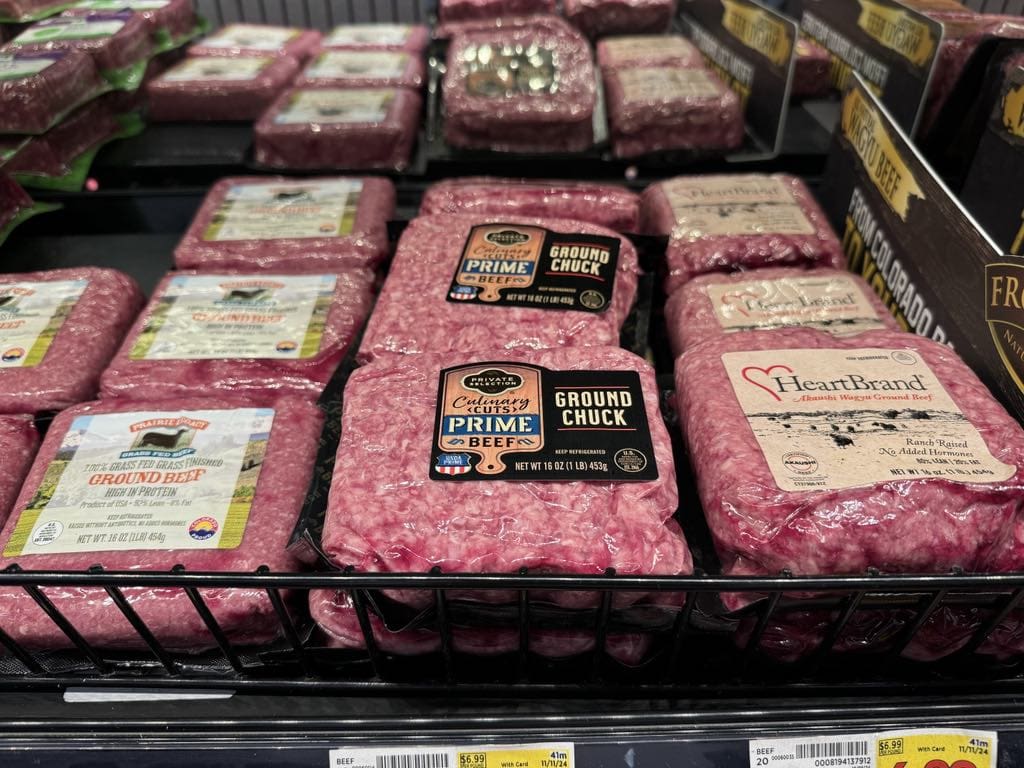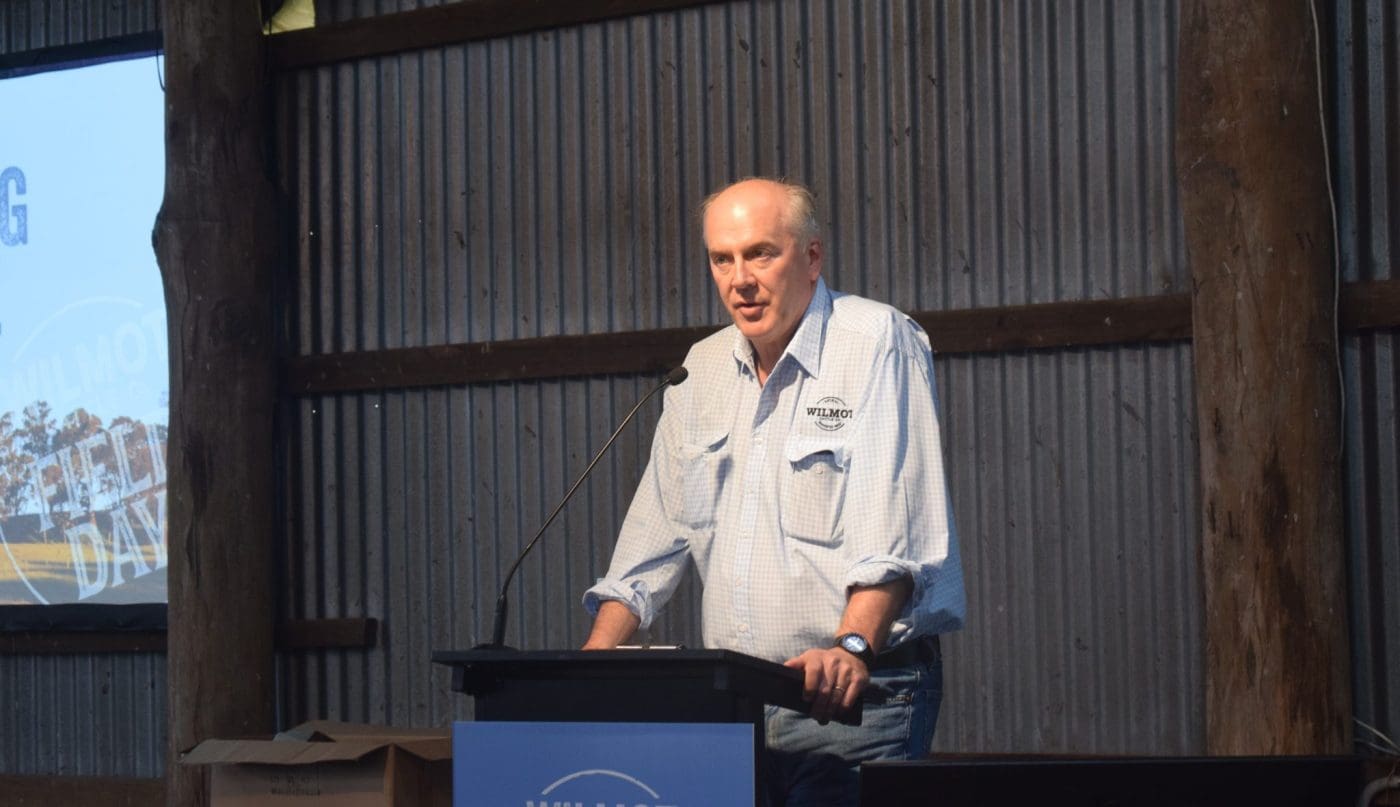
Ground beef is far from a commodity item in US retail shelves. The examples above include, ground chuck (US$6.99/lb, A$23.50/kg) Heart-brand HGP-free (also US$6.99/lb) and certified grassfed.
AN increasingly divisive debate is erupting in the United States, pitting grassfed and grainfed beef against each other – with some media outlets defending feedlots and the Trump administration keen to overhaul the food system.
New research modelling the carbon footprint of grass-finished beef vs “industrial beef” was released by a team of US researchers this week, finding that grass-finished beef was not as environmentally friendly as it’s made out to be.
The research was picked up by the US media and spread widely, mainly through an Associated Press article headlined: “eat grass-fed beef, help the planet? Research says not so simple”. The article was also picked up by the Washington Post.
This week’s research paper appears to be the latest in a trend of media outlets, who have previously given full voice to activists wanting to eliminate beef from diets altogether, now actively defending feedlots.
Earlier this year, Washington Post published an opinion article arguing that stopping eating “free-range beef” was a way to save the planet. It was a published a month after a New York Times opinion piece making a similar argument.
Emissions have been the main argument against grassfed beef, with cattle consuming more roughage over their lifetimes and taking longer to get to market – both resulting in more methane emissions.
Much of the reporting has not been promoting the fact that most US cattle still spend the majority of their life on grass before going into a feedlot. Or other arguments like that of Spanish academic Pablo Maznano, whose research has found that taking animals off landscapes is unlikely to reduce emissions as other herbivores are likely to take their place.
Why the change in opinion?
One well-known US beef industry figure told Beef Central he believed the grainfed vs grassfed debate was activists finding a new way to divide the beef industry.
Grassfed beef is only a fraction of the US market, with the overwhelming majority of US beef finishing its life on grain.
However, grassfed beef is an incredibly marketable product – with most US supermarkets having a section devoted to beef with grassfed claims. Grassfed beef has been one of the Australian beef industry’s biggest avenues into the US in recent years.
The trend of media outlets defending feedlots was highlighted at the recent Wilmot Field Days by Wilmot’s owner Alasdair Macleod, who described it as “big ag” pushing back on the regenerative agriculture movement.
“Make no mistake, big ag is concerned and is trying hard to work out how they can get ahead of this emerging demand for more natural products, grown more naturally,” Mr Macleod said.
The conference was headlined by Gabe Brown, a US regenerative agriculture advocate who has a certification system for beef marketed as ‘regenerative’ – which is mostly sold as a grass finished product.
Asked where thinks feedlots fit into the American system, Mr Brown said he could not see them being displaced
“You’re not going to displace feedlots. In saying that feedlots are definitely on a trend, that is decreasing. And I believe we will continue to decrease, for a number of reasons,” he told Beef Central.
“One of them is nutrient density, aquifers are being drained, water quality and quantity is an issue. And then also handling the waste of the animals, they’ve got those phosphorus levels so high on the farms surrounding where they add all that manure to, it’s being shut down.”
Big support for grassfed beef
The new US Government appears to be a supporter of grass-finished beef, or at least regenerative agriculture.
Health secretary Robert F. Kennedy Jr has been a vocal supporter of regenerative agriculture and making sure animals stay on landscapes. Asked for his thoughts on the new health secretary, Mr Brown said:
“Do you want his number? It’s on my phone. We’re in contact with his team all the time.
“And he really has a good handle on regen ag, as do like our new interior secretary. He spent time on my ranch learning about regen and he actually is starting to get it.
“I think Bobby Kennedy, if Trump lets him do what he wants to do, will make a major difference in and it will be a boom to regen because of the nutrient science I shared with you.”


